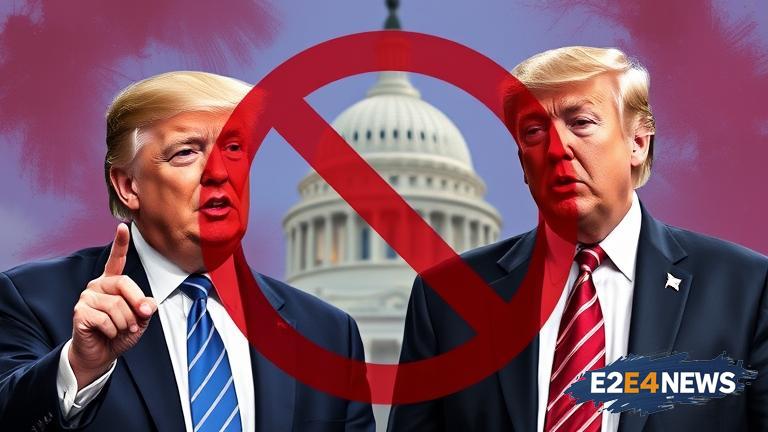The issue of congressional stock trading has been a topic of controversy in recent years, with many arguing that it creates an unfair advantage for lawmakers and their families. Former President Trump and Senator Josh Hawley are now joining the chorus of voices calling for a ban on the practice. Trump has long been a critic of congressional stock trading, and has previously called for lawmakers to be barred from trading individual stocks. Hawley, a Republican from Missouri, has introduced legislation that would prohibit members of Congress and their spouses from trading stocks. The bill, known as the Pelosi Act, is named after House Speaker Nancy Pelosi, whose husband has been accused of making lucrative stock trades based on information gathered through his wife’s position. The Pelosis have denied any wrongdoing, but the issue has sparked widespread outrage and calls for greater transparency and accountability. Trump has also weighed in on the issue, tweeting that ‘it’s a disgrace’ that lawmakers are allowed to trade stocks while in office. He has also called for a ban on the practice, saying that it’s ‘unfair’ to the American people. Hawley’s bill has gained traction in recent weeks, with several high-profile lawmakers expressing support for the measure. The bill would require members of Congress and their spouses to place their stocks in a blind trust, or to divest from individual stocks altogether. Proponents of the bill argue that it would help to prevent insider trading and corruption, and would restore trust in government. Opponents, on the other hand, argue that the bill is overly broad and would unfairly restrict the financial freedom of lawmakers and their families. The issue of congressional stock trading has been a topic of debate for years, with many arguing that it creates a conflict of interest and undermines the integrity of government. In 2020, a report by the non-partisan watchdog group, Unusual Whales, found that members of Congress and their families had traded stocks worth millions of dollars, often in companies that were directly affected by their legislative actions. The report sparked widespread outrage and calls for reform, with many arguing that the practice was a clear example of the ‘swamp’ in Washington that Trump had campaigned against. Despite the controversy, many lawmakers have continued to trade stocks, often using complex financial instruments and shell companies to conceal their activities. The practice has also sparked concerns about national security, with some arguing that foreign adversaries could potentially exploit the practice to gain access to sensitive information. As the debate over congressional stock trading continues to heat up, it remains to be seen whether Hawley’s bill will gain enough support to become law. However, with Trump and other high-profile lawmakers weighing in on the issue, it’s clear that the practice will continue to be a major topic of controversy in the months and years to come. The issue has also sparked a wider debate about the need for greater transparency and accountability in government, with many arguing that the practice is just one example of a broader culture of corruption and entitlement in Washington. As the American people continue to demand greater accountability from their lawmakers, it’s likely that the issue of congressional stock trading will remain a major topic of discussion and debate. The call for a ban on congressional stock trading is not new, but it has gained momentum in recent years, with many arguing that it’s a necessary step to restore trust in government. The practice has also sparked concerns about the potential for insider trading, with some arguing that lawmakers could potentially use their access to sensitive information to make lucrative trades. While the issue is complex and multifaceted, it’s clear that the practice of congressional stock trading has sparked widespread outrage and calls for reform. As lawmakers continue to debate the issue, it remains to be seen whether a ban on the practice will become a reality. However, with the American people demanding greater accountability and transparency from their government, it’s likely that the issue will continue to be a major topic of discussion and debate in the months and years to come.
